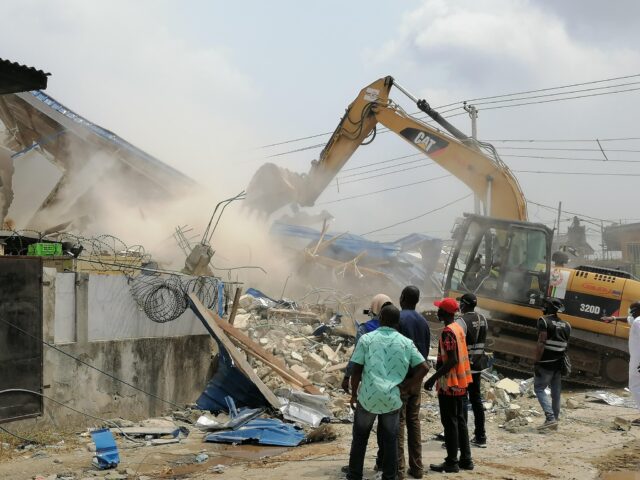Lagos, Nigeria’s bustling economic hub, has embarked on an extensive demolition project aimed at urban renewal and infrastructure development. This initiative, while controversial, seeks to address the pressing challenges of overpopulation, inadequate infrastructure, and environmental degradation. This article delves into the multifaceted aspects of the Lagos demolition, exploring its impacts, underlying causes, and future prospects.
Understanding Lagos Demolition
Historical Background
The roots of the Lagos demolition can be traced back to the city’s rapid urbanization and population growth. Lagos, originally a small fishing village, evolved into one of Africa’s largest cities, attracting millions of people in search of better economic opportunities. This exponential growth, however, led to severe strain on the city’s infrastructure and resources.
Causes of Demolition
The primary drivers behind the demolition include the need for modernization, the elimination of illegal structures, and the mitigation of environmental hazards. Many buildings in Lagos are constructed without proper permits, resulting in poorly planned neighborhoods that lack essential services and pose safety risks.
Key Areas Affected
Several neighborhoods, particularly informal settlements and waterfront communities, have been significantly impacted. Areas like Makoko, often dubbed the “Venice of Africa,” have faced substantial changes as part of the government’s urban renewal strategy.
Government’s Role
Urban Renewal Policies
The Lagos State Government has introduced various policies aimed at transforming the city. These policies focus on improving infrastructure, creating green spaces, and ensuring sustainable development. The Lagos State Urban Renewal Authority (LASURA) plays a pivotal role in these initiatives, working towards creating a more livable city.
Key Players in the Demolition
Multiple stakeholders, including government agencies, private developers, and international partners, are involved in the demolition and redevelopment efforts. Collaboration between these entities is crucial for the successful implementation of urban renewal projects.
Impacts on Residents
Displacement and Relocation
One of the most significant consequences of the demolition is the displacement of thousands of residents. Relocation efforts have faced criticism for being inadequate, with many displaced individuals struggling to find new homes and livelihoods.
Social and Economic Effects
The demolition has had far-reaching social and economic effects. While it aims to create a more orderly urban environment, it has also disrupted communities, leading to loss of income, social networks, and cultural heritage.
Environmental Considerations
Sustainable Practices
In an effort to mitigate the environmental impact of the demolition, the government has implemented several sustainable practices. These include recycling building materials, creating green spaces, and ensuring that new constructions meet environmental standards.
Environmental Challenges
Despite these efforts, the demolition has also posed significant environmental challenges. The destruction of structures often leads to increased pollution and waste, requiring robust management strategies to minimize ecological damage.
Economic Implications
Boosting Local Economy
The demolition and subsequent redevelopment are expected to boost the local economy by attracting investments and creating job opportunities. Improved infrastructure and urban planning can enhance the city’s attractiveness to businesses and tourists alike.
Business and Investment Opportunities
The transformation of Lagos opens up numerous opportunities for business and investment. Real estate, construction, and tourism sectors are particularly poised to benefit from the ongoing urban renewal projects.
Legal and Ethical Issues
Property Rights and Compensation
Property rights and fair compensation are contentious issues in the demolition process. Many residents claim inadequate or delayed compensation, raising legal and ethical concerns about the government’s approach to urban renewal.
Human Rights Concerns
The demolition has also sparked debates about human rights, with activists arguing that the process violates the rights of affected individuals. Ensuring that the urban renewal respects human dignity and rights is crucial for its long-term success.
Case Studies
Successful Urban Renewal Projects
Looking at other cities around the world, we can find examples of successful urban renewal projects that Lagos can learn from. Cities like Singapore and Curitiba have implemented innovative solutions that balance development with social and environmental considerations.
Lessons Learned from Past Demolitions
Past demolitions in Lagos and other cities offer valuable lessons. Understanding what worked and what didn’t can help refine current strategies and avoid repeating past mistakes.
Future Prospects
Long-term Urban Planning
The future of Lagos hinges on effective long-term urban planning. This involves not just addressing immediate issues but also anticipating future challenges and ensuring sustainable growth.
The Future of Lagos Infrastructure
Improved infrastructure is at the heart of Lagos’s future. Plans include expanding transportation networks, enhancing utilities, and creating smart city initiatives to position Lagos as a leading metropolis in Africa.
Community Responses
Public Opinion
Public opinion on the demolition is divided. While some support the need for modernization, others criticize the displacement and the handling of the demolition process. Engaging with the community and incorporating their feedback is essential for the project’s success.
Activism and Advocacy
Activists and advocacy groups play a crucial role in highlighting the negative impacts of the demolition and pushing for more equitable solutions. Their efforts ensure that the voices of the affected communities are heard and considered in decision-making processes.
FAQs
What is the main goal of the Lagos demolition? The main goal is to modernize the city, eliminate illegal structures, and improve infrastructure to create a more livable and sustainable urban environment.
How are displaced residents being compensated? The government has implemented compensation plans, but there have been criticisms regarding the adequacy and timeliness of these compensations.
What are the environmental impacts of the demolition? The demolition poses both positive and negative environmental impacts, including the creation of green spaces and increased pollution from demolition waste.
How will the demolition affect the local economy? The demolition is expected to boost the local economy by attracting investments and creating job opportunities in various sectors, including real estate and construction.
What legal issues are associated with the demolition? Legal issues primarily revolve around property rights and fair compensation for displaced residents, as well as broader human rights concerns.
What are the future plans for Lagos’s infrastructure? Future plans include expanding transportation networks, enhancing utilities, and developing smart city initiatives to position Lagos as a leading metropolis in Africa.
Conclusion
The Lagos demolition is a pivotal part of the city’s journey towards modernization and sustainable development. While it presents numerous challenges, including displacement and environmental concerns, it also offers opportunities for economic growth and improved urban living conditions. Balancing these aspects through effective planning and community engagement will determine the ultimate success of Lagos’s urban renewal efforts.

